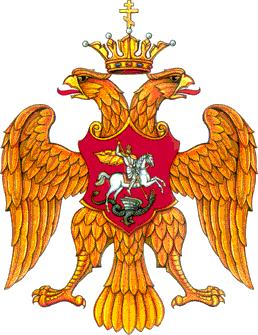|
Nikolay Petrovich Rumyantsev
Count Nikolai Petrovich Rumyantsev (; 3 April 1754 – 3 January 1826), born in Saint Petersburg, was Russian Empire, Russia's Foreign Minister and Chancellor of the Russian Empire in the run-up to Napoleon's invasion of Russia (1808–12). He was the son of Field Marshal Pyotr Rumyantsev, Pyotr Rumyantsev-Zadunaisky from the Rumyantsev comital family. Background Rumyantsev and his brother were provided with basic education at home. Their mentor was Friedrich Melchior, Baron von Grimm. In 1774 they went to Leiden University where they studied history, law and language. Official career Rumyantsev was the first envoy of Russia to the Holy Roman Empire after Russia became a guarantor of the imperial constitution through the Treaty of Teschen (1779). He arrived in 1782 accredited as ambassador to the Electoral Rhenish Circle, Upper Rhenish Circle, Swabian Circle, Franconian Circle, Electorate of Mainz, Electorate of Cologne, Palatine Zweibrücken, Duchy of Württemberg, Margrav ... [...More Info...] [...Related Items...] OR: [Wikipedia] [Google] [Baidu] |
Minister Of Foreign Affairs (Russia)
The Minister of Foreign Affairs of the Russian Federation is a high-ranking Russian government official who heads the Ministry of Foreign Affairs (Russia), Ministry of Foreign Affairs of the Russian Federation. The foreign minister is one of the five so-called 'presidential' ministers, along with the ministers of Minister of Defence (Russia), defense, Minister of Internal Affairs (Russia), interior, Minister of Emergency Situations (Russia), emergencies and Ministry of Justice (Russia), justice. Although they are members of the Government of Russia#Current Cabinet, Cabinet, they are directly subordinate to the President of Russia, President. The foreign minister, like other presidential ministers, is nominated and appointed by the President after consultation with the Federation Council (Russia), Federation Council (whereas non-presidential ministers are nominated by the Prime Minister of Russia, Prime Minister and appointed by the President after approval by the State Duma). Th ... [...More Info...] [...Related Items...] OR: [Wikipedia] [Google] [Baidu] |
Franconian Circle
The Franconian Circle (german: Fränkischer Reichskreis) was an Imperial Circle established in 1500 in the centre of the Holy Roman Empire. It comprised the eastern part of the former Franconian stem duchy—roughly corresponding with the present-day Bavarian ''Regierungsbezirke'' of Upper, Middle and Lower Franconia—while western Rhenish Franconia belonged to the Upper Rhenish Circle. The title of a "Duke of Franconia" was claimed by the Würzburg bishops. Emergence and location As early as the Middle Ages, Franconia had very close links to king and empire. Located between the Rhenish territories of the empire and the Kingdom of Bohemia, Franconia, which included the former Duchy of Franconia, had been one of the centres of empire for a long time. By order of Emperor Louis of Bavaria, Bamberg, Würzburg, Eichstätt and Fulda with the Hohenzollern Burgraves of Nuremberg, Counts of Henneberg, the Castell and Hohenlohe, the three episcopal cities, and the imperial citie ... [...More Info...] [...Related Items...] OR: [Wikipedia] [Google] [Baidu] |
Congress Of Vienna
The Congress of Vienna (, ) of 1814–1815 was a series of international diplomatic meetings to discuss and agree upon a possible new layout of the European political and constitutional order after the downfall of the French Emperor Napoleon Bonaparte. Participants were representatives of all European powers and other stakeholders, chaired by Austrian statesman Klemens von Metternich, and held in Vienna from September 1814 to June 1815. The objective of the Congress was to provide a long-term peace plan for Europe by settling critical issues arising from the French Revolutionary Wars and the Napoleonic Wars without the use of (military) violence. The goal was not simply to restore old boundaries, but to resize the main powers so they could balance each other and remain at peace, being at the same time shepherds for the smaller powers. More fundamentally, strongly generalising, conservative thinking leaders like Von Metternich also sought to restrain or eliminate republicanism, ... [...More Info...] [...Related Items...] OR: [Wikipedia] [Google] [Baidu] |


